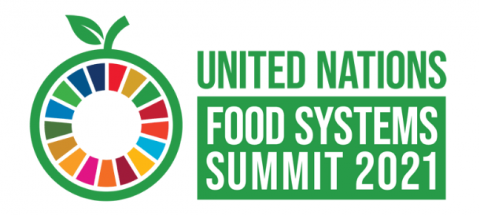Food Loss and Waste
Food is Never Waste Coalition
Launched by a group of partners at the UN Food Systems Summit
The Magnitude of the Food Loss and Waste Problem
Around 14 percent of the world's food valued at $400 billion per year continues to be lost in the supply chain after it is harvested and before it reaches retail, while a further 17 percent - approximately 931 million tonnes of food - ends up being wasted in retail and by consumers. Much of this food waste takes place in households.
Food loss and waste (FLW) implies unnecessary pressure on the environment and the natural resources used to produce it in the first place. It essentially means that land and water resources have been wasted, pollution created, and greenhouse gases (GHGs) emitted to no purpose.
The Food is Never Waste Coalition was launched at the Food Systems Pre-Summit in Rome, in 2021, to take forward the Agenda 2030 to accelerate the pace of reducing food loss and waste, following the Food Systems Summit 2021, toward achieving SDG 12.3.
Toward that end, and through its initiatives to achieve SDG target 12.3, the Coalition seeks to:
- Halve food waste by 2030 and to reduce food losses by at least 25%
- Create more sustainable and resilient food systems that seek to ensure food loss and waste are minimized
- Build and strengthen collaboration throughout food systems, between member states and organisations to ensure learning and sharing of best practice
- Promote investment in food loss and waste reduction

"SDG target 12.3: By 2030, halve per capita global food waste at the retail and consumer levels
and reduce food losses along production and supply chains, including post-harvest losses."
# 123 Pledge to Reduce Food Loss and Waste: the first Initiative of the Coalition
The #123 Pledge, launched during CoP27, is the first initiative of the Coalition. The ‘123 Pledge’ is coordinated by Champions 12.3, UN Environment Programme (UNEP), and Food and Agriculture Organization of the United Nations (FAO). It is also supported by WRAP, WWF, and Rabobank.
The Food and Agriculture Organization of the United Nations (FAO) is pleased to invite governments, companies, institutions and individuals to pledge to align their action agendas to halve food waste by 2030 and reduce food losses by at least 25 percent, toward accelerating actions to achieve SDG target 12.3.
Why is the Pledge Important?
“With the damaging effects climate change has on food security and nutrition, and the negative effects of agrifood systems on climate change and the environment across the world, now is the moment for decisive action to transform how our agrifood systems operate and reduce food loss and waste, providing benefits from both a mitigation and adaptation angle to assure better production, better nutrition, better environment, and a better life” said Máximo Torero Cullen, Chief Economist of FAO. “Commitment from all stakeholders – from governments, private sector companies, small producers, and civil society to consumers – will be required if we are to make a dent in the issue of FLW and achieve the aspirations of the 2030 Agenda. This is the importance of the #123Pledge and the collaborative efforts championed by the Food Is Never Waste Coalition".
“Food loss and waste drives up to 10% of planet-warming greenhouse gas emissions, yet just a handful of countries mention it in their national climate plans. None of the world’s biggest emitters are on that list,” said Liz Goodwin, Senior Fellow and Director of Food Loss and Waste at World Resources Institute, which serves as secretariat of Champions 12.3. “Despite some real bright spots, the world is woefully behind where it needs to be. Without real action to halve food loss and waste, it will be very difficult to solve the climate crisis.”
“Halfway towards 2030, now is the time to act globally. Countries with long track records of measuring and cutting food loss and waste should support countries getting started on this journey. Companies should be mainstreaming best practices throughout their operations worldwide. And every one of us can act now, at home and at work” said Sheila Aggarwal-Khan, Director, Economy Division at UNEP. “Every day, every plate counts.”

Policy and Strategy
Achieving SDG 2 without breaching the 1.5 °C threshold: A global roadmap
Agrifood systems appear to face a dilemma: intensifying efforts to increase productivity while endangering climate goals – or curbing production to reduce emissions.
In the unfolding narrative of the global commitment to transform agrifood systems, FAO embarks on presenting a Global Roadmap; Achieving SDG2 without breaching the 1.5C threshold.
FAO's roadmap involves an extensive process that spans three years, starting with COP 28 in 2023.
Food is Never Waste Coalition members:
• National states: US, Brazil, Indonesia, Italy, Ecuador
• UN agencies/IFIs: FAO, UNEP, the World Bank, regional development banks
• NGOs: WRI, WRAP, WWF, Global Foodbanking Network
• Academia/Think Tank/Research Centre: Wageningen University, CGIAR
• Others: Champions 12.3, Rabobank

RELEVANT RESOURCES
Food Loss and Waste
What is the real cost of food?
International day of awareness of food loss and waste 2021 video
